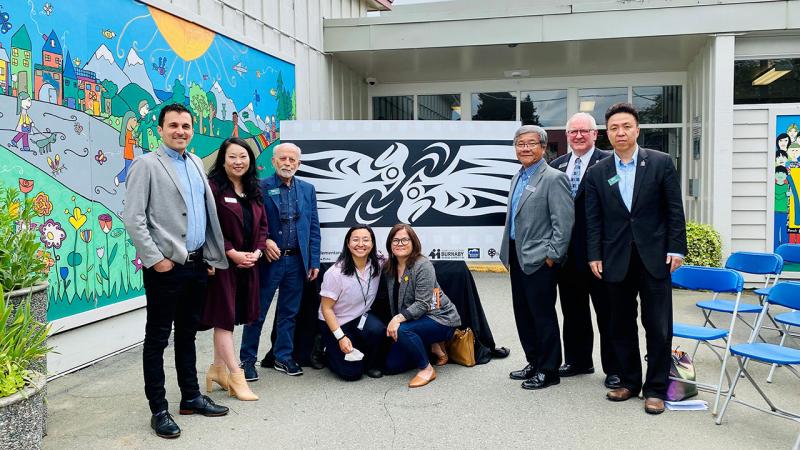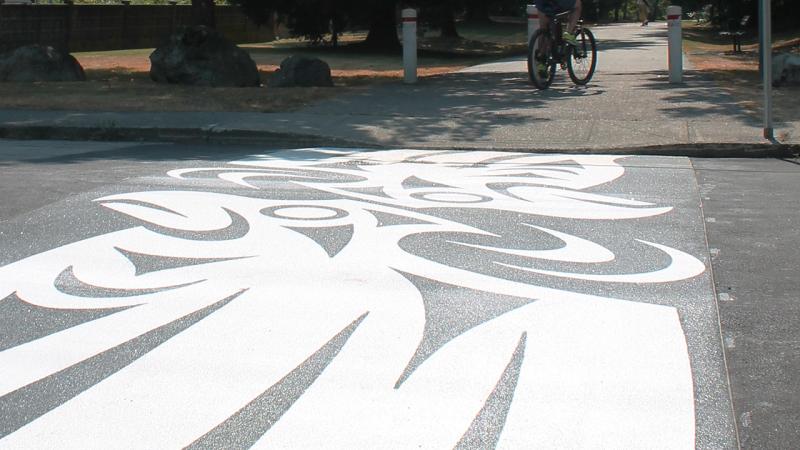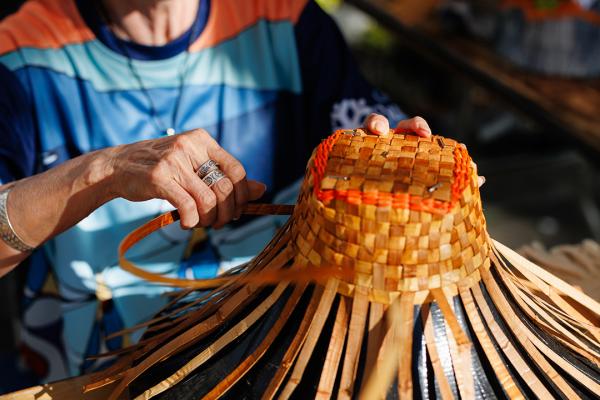
Indigenous Peoples & Reconciliation

The City of Burnaby is located on the unceded territories of the xʷməθkʷəy̓əm (Musqueam), Sḵwx̱wú7mesh (Squamish), səlilwətaɬ (Tsleil-Waututh), and kʷikʷəƛ̓əm (Kwikwetlem) Peoples
Each Nation has distinct histories and distinct traditional territories that fully or partially encompass the city. We encourage you to learn more about the Host Nations whose ancestors have occupied and used these lands, including parts of present-day Burnaby, for thousands of years.
Since 2016, the City of Burnaby has been working toward truth and reconciliation. We are committed to working with Indigenous Peoples to find new ways to build and improve relationships between non-Indigenous Canadians and Indigenous communities.
To learn more about the history of local First Nations people, see our award-winning guidebook, Indigenous History in Burnaby.
Get involved
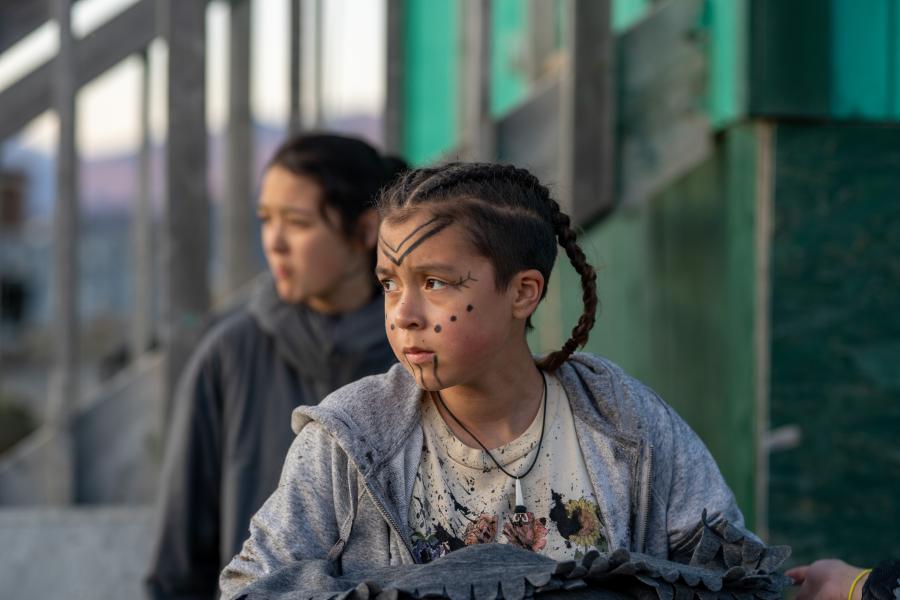
Slash/Back film screening
Friday, March 27 | 7:30-9 pm
Nestled in the majestic mountains of Baffin Island in the Arctic Ocean, the town wakes up to a typical summer day. No school, no cool boys (well... except one), and 24-hour sunlight. But for Maika (Tasiana Shirley) and her ragtag friends, the usual summer is suddenly not in the cards when they discover an alien invasion threatening their hometown.
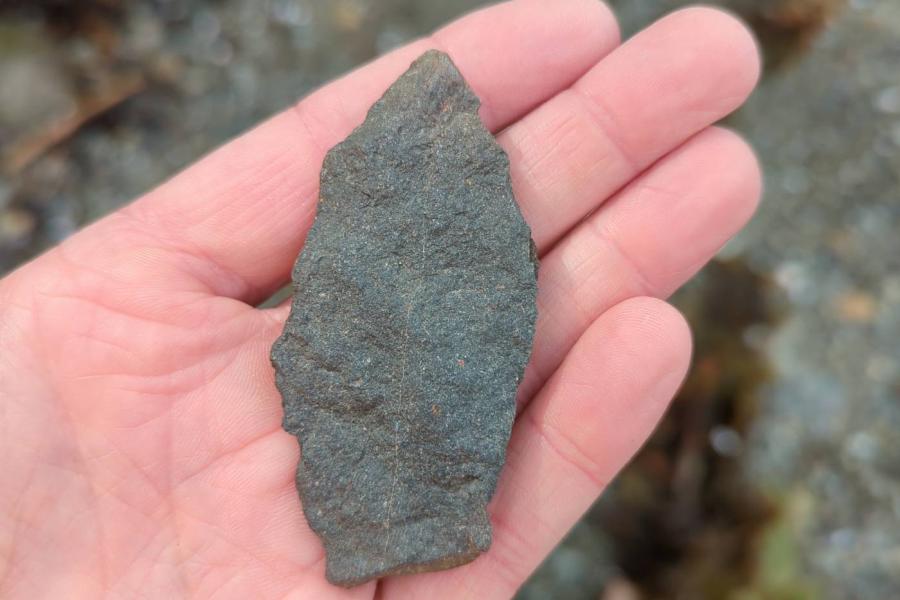
Spring Break Archaeology Pop-Up Event
Learn about archaeology at the Burnaby Village Museum this spring break! Through this hands-on, interactive experience, visitors can learn about archaeology as a discipline and about archaeology in Burnaby.
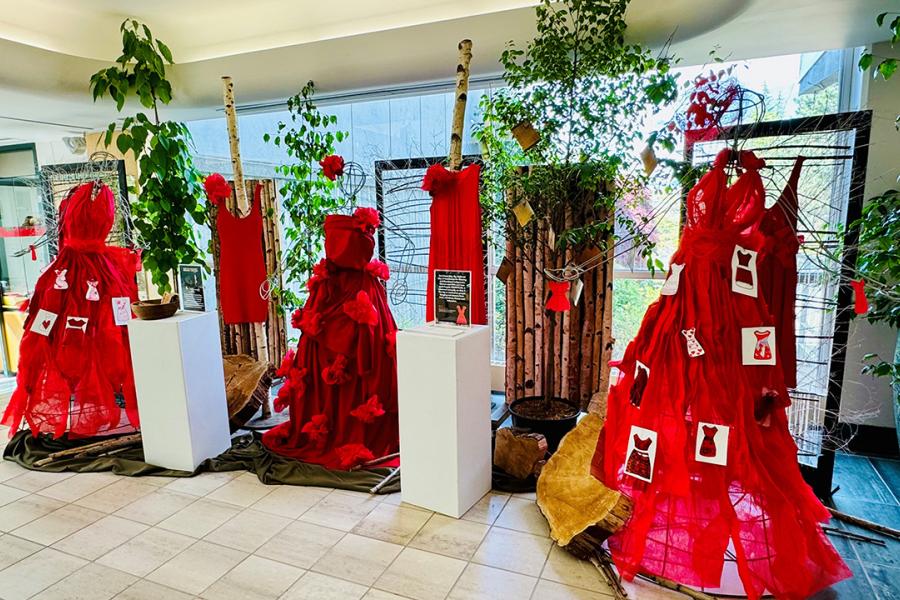
Red Dress Day
Red Dress Day, the National Day of Awareness for Missing and Murdered Indigenous Women and Girls and Two-Spirited People (MMIWG2S), is observed annually on May 5. This day is marked by a poignant gesture—red dresses hung from trees, windows, fences, and balconies—a symbol of remembrance and solidarity. You can contribute to this meaningful commemoration by crafting your own red dress to hang up.
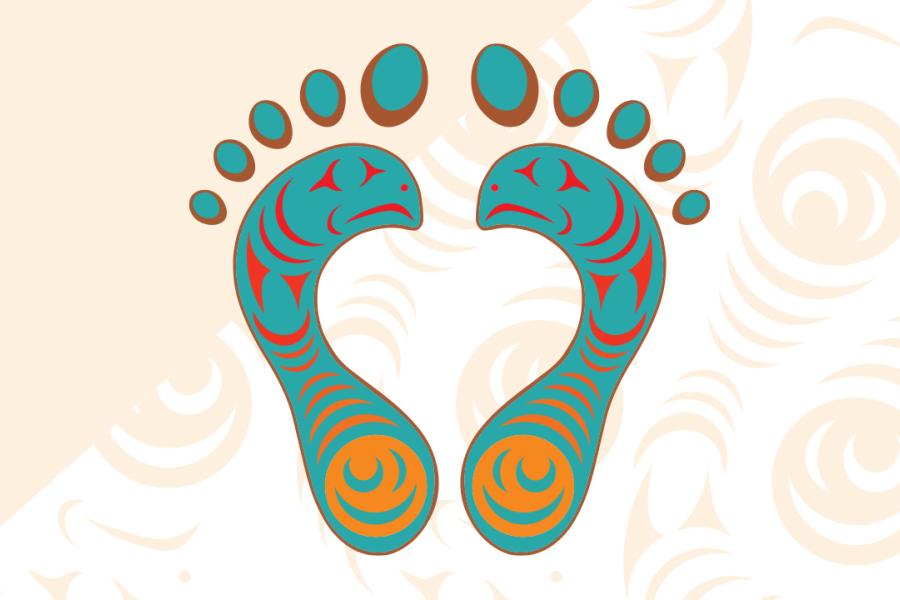
National Indigenous People's Day
Recognize and celebrate the history, heritage and resilience and diversity of First Nation, Inuit and Métis Peoples with us on June 20.
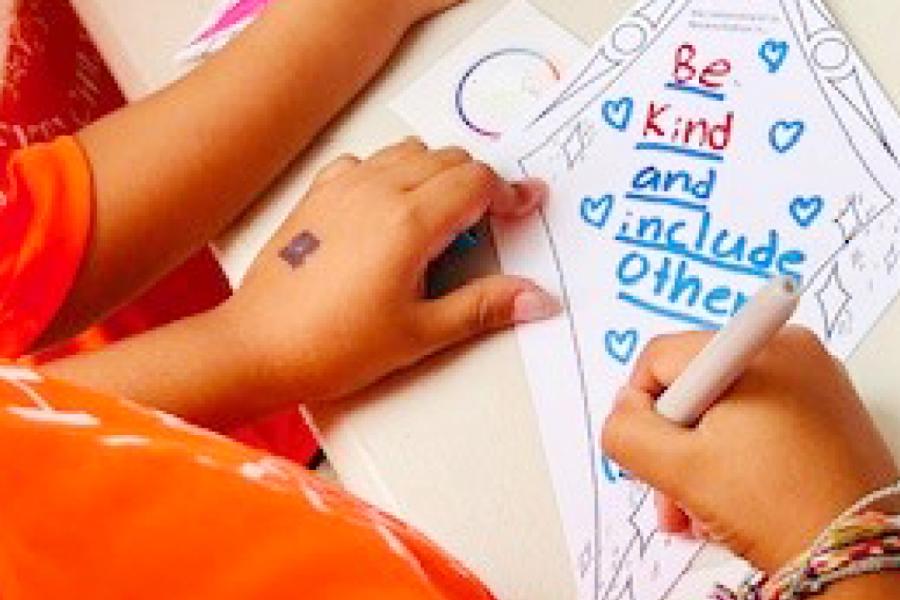
National Day for Truth and Reconciliation
We’re committed to actively working to advance reconciliation by building and maintaining positive relationships to meaningfully do this important work together – on National Day for Truth and Reconciliation and all days.
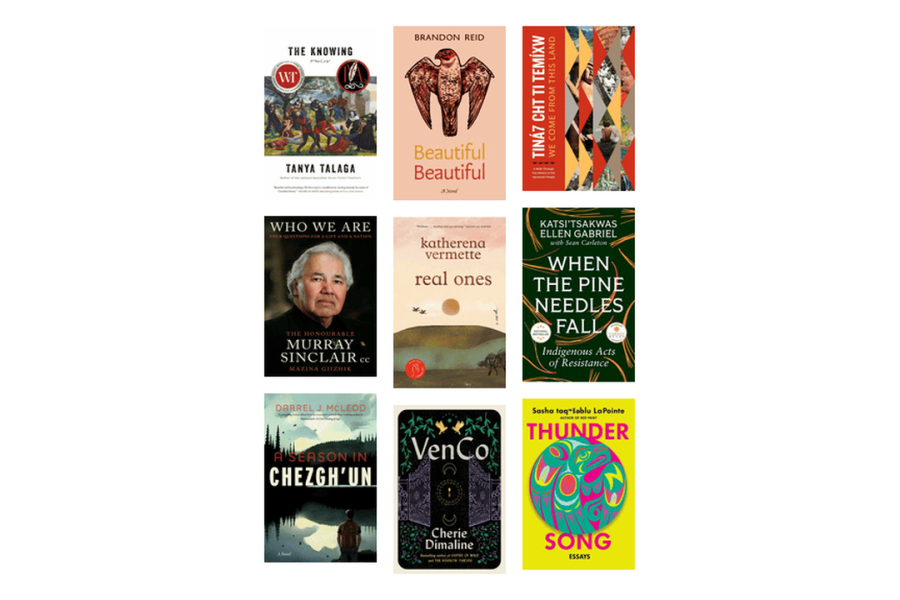
Indigenous Voices Booklist
Explore powerful stories by Indigenous authors at Burnaby Public Libraries. Curated by Burnaby librarians, this reading list showcases Indigenous voices across fiction and non-fiction, with titles for readers of all ages.
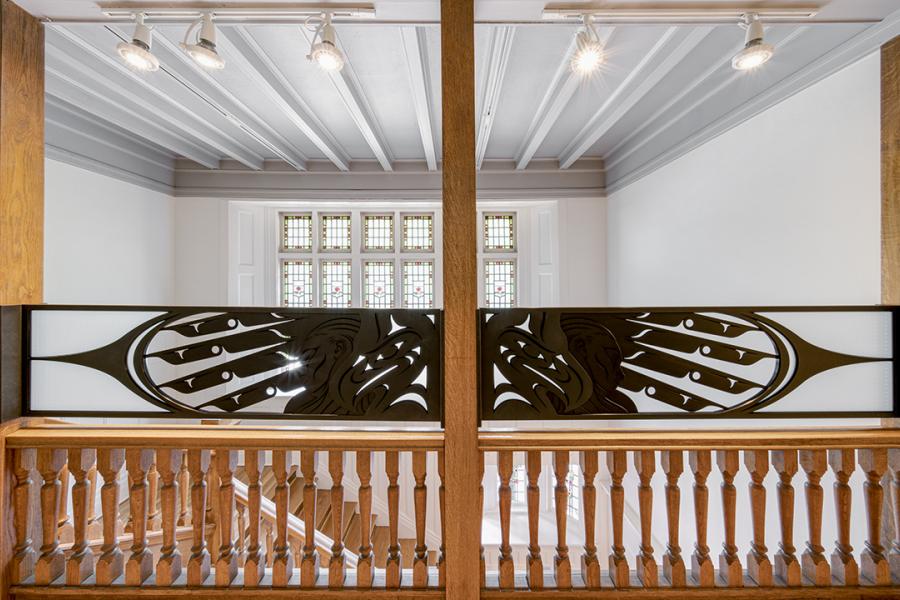
Indigenous Public Art in Burnaby
Artists bring knowledge and lived experience to their work, and the public art created by Indigenous artists reflects a range of vital practices and perspectives. As the City continues building a practice of supporting Indigenous expression, we invite you to discover Indigenous Public Art in Burnaby.
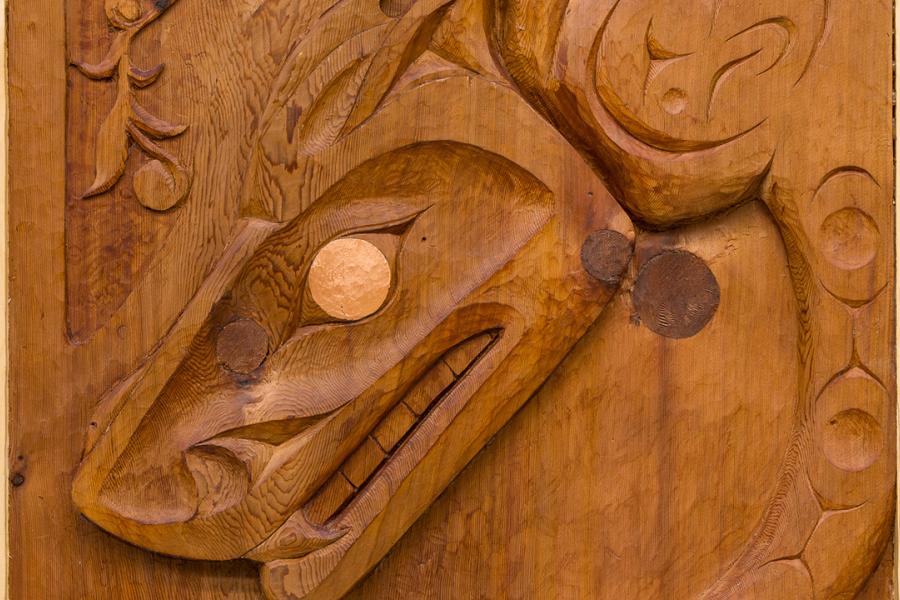
Jonas Jones, k̓ʷə səlilwətaɬ syəwenəɬ ct - Our Tsleil-Waututh Ancestors, 2023
This artwork was commissioned to honour the relationship between the City of Burnaby and səlilwətaɬ (Tsleil-Waututh Nation) and is displayed at Burnaby City Hall.
News & Updates
-
City signs landmark engagement agreement with səlilwətaɬ (Tsleil-Waututh Nation)
səlilwətaɬ (Tsleil-Waututh Nation) and the City of Burnaby have signed a historic agreement, outlining a process for government-to-government engagement for projects in Burnaby. -
səlilwətaɬ (Tsleil-Waututh Nation) and City of Burnaby sign agreement to co-manage Barnet Marine Park
On June 18, səlilwətaɬ (Tsleil-Waututh Nation) and the City of Burnaby took an important step towards reconciliation by signing a co-management agreement for Barnet Marine Park. -
New artwork unveiled for 2026 National Indigenous Peoples Day
The National Indigenous Peoples Day celebration on Saturday, June 21 highlighted the heritage, resilience, and diversity of First Nations, Inuit, and…
Actions we're taking to promote Truth and Reconciliation
The City of Burnaby has created a new division, Indigenous Relations and Reconciliation. The Director, Indigenous Relations and Reconciliation, manages this division and oversees the development and implementation of a framework for reconciliation in consultation and cooperation with the Host Nations on whose land the City of Burnaby is located, the xʷməθkʷəy̓əm (Musqueam), Sḵwx̱wú7mesh (Squamish), səlilwətaɬ (Tsleil-Waututh), and kʷikʷəƛ̓əm (Kwikwetlem) Nations, as well as the urban Indigenous Peoples who live in Burnaby.
Contact [email protected] for more information.
The City of Burnaby is located on the unceded territories of the xʷməθkʷəy̓əm (Musqueam), Sḵwx̱wú7mesh (Squamish), səlilwətaɬ (Tsleil-Waututh), and kʷikʷəƛ̓əm (Kwikwetlem) Peoples and has initiated formal government-to-government relations with the Host Nations.
We’re committed to building and maintaining positive and meaningful relationships with Host Nations and Indigenous Peoples who live in Burnaby, to understand the truth in Truth and Reconciliation and to advance Reconciliation between Indigenous and non-Indigenous people.
Barnet Marine Park Co-Management Agreement with Tsleil-Waututh Nation
On June 18, 2025, we signed a co-management agreement for saltaɬ (Barnet Marine Park) with səlilwətaɬ (the Tsleil-Waututh Nation). This agreement formalizes a partnership between Burnaby and səlilwətaɬ to cooperate with one another concerning the planning and management of the park. Barnet Marine Park is a culturally, environmentally and historically significant area in səlilwətaɬ traditional territory. Co-management with səlilwətaɬ will allow both parties to preserve and protect the natural beauty and cultural significance of the park for generations to come.
This agreement also creates opportunities for us to work with səlilwətaɬ to develop the recreational use and enjoyment of the park by members of the public and the səlilwətaɬ people. It will also increase public awareness of, and celebrate səlilwətaɬ cultural history and the significance of the park and surrounding area to the Tseil-Waututh Nation.
To acknowledge the history of Indigenous Peoples in Canada and the original stewards of theses lands, the City of Burnaby has established the Matriarch's Garden at Burnaby Village Museum, and developed school and public programs at the Burnaby Art Gallery and Burnaby Village Museum that incorporate and feature Indigenous content.
The City has also created an Indigenous Learning House at Burnaby Village Museum. The Museum's educators work closely with Host Nations, Indigenous artists, Elders and knowledge keepers to develop Indigenous curriculum and materials for museum visitors.
June marks an opportunity for us to acknowledge Indigenous Peoples and to learn about their histories, cultures, languages and ways of life. On June 21, the City recognizes National Indigenous Peoples Day with a community event celebrating Indigenous Peoples history, culture and art.
In recognition of the National Day for Truth and Reconciliation and Orange Shirt Day, the City sponsors an annual City of Burnaby Hope and Health Community Camp. The camp promotes ReconciliACTION and is an opportunity to engage children and youth in reconciliation.
The City features regular displays of Indigenous public art and informational displays in the lobby at City Hall, and invests in Indigenous public art throughout the community. The Shadbolt Centre also features performances by Indigenous Peoples throughout the year.
In 2022, the City also partnered with the Burnaby School District to support the efforts of a Grade 6/7 class at Westridge Elementary, who came up with the idea to put reconciliation into action through the installation of a new crosswalk near their school, designed by local Indigenous artist, Atheana Picha.
This work, throughout the City, has informed other related City processes and programs and has formed a cornerstone of the City's reconciliation efforts, including creating staff guidelines that inform and actualize territory acknowledgment at City events and in civic documents.
The Truth and Reconciliation Commission Report Call to Action #57 calls upon all levels of governments to provide education to public servants on the history of Indigenous peoples, including the history and legacy of residential schools, and the United Nations Declaration on the Rights of Indigenous Peoples. This professional development supports the advancement of reconciliation efforts at a local government level.
In collaboration with Host Nations, Indigenous Elders and knowledge keepers, the City of Burnaby is working to implement this work and provide authentic learning opportunities to leadership and staff, to develop cultural awareness, understanding, empathy and cultural safety at all levels.
Resource guides
How to pronounce
- xʷməθkʷəy̓əm (Musqueam, mus-kwee-um)
- Sḵwx̱wú7mesh (Squamish) - listen to the audio clip
- səlilwətaɬ (Tsleil-Waututh, Slay-wah-tuth) - listen to the video clip
- kʷikʷəƛ̓əm (Kwikwetlem, kwee-kwuh-tlum)
